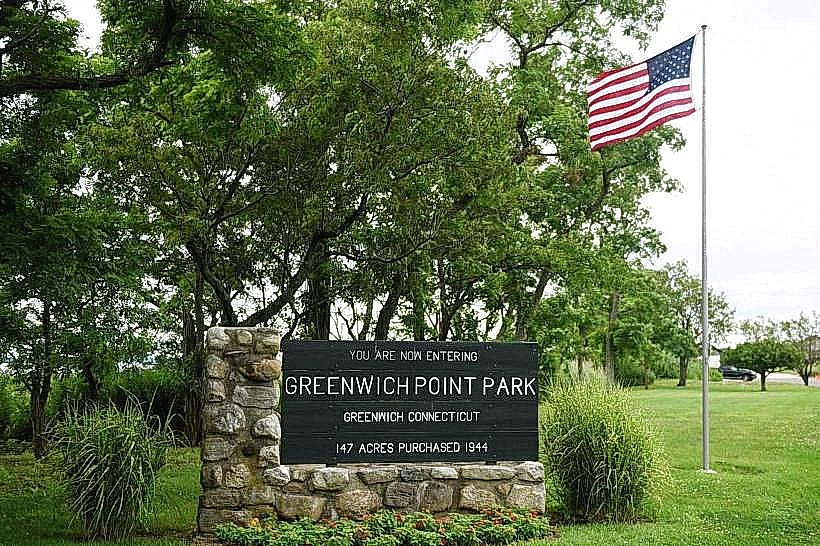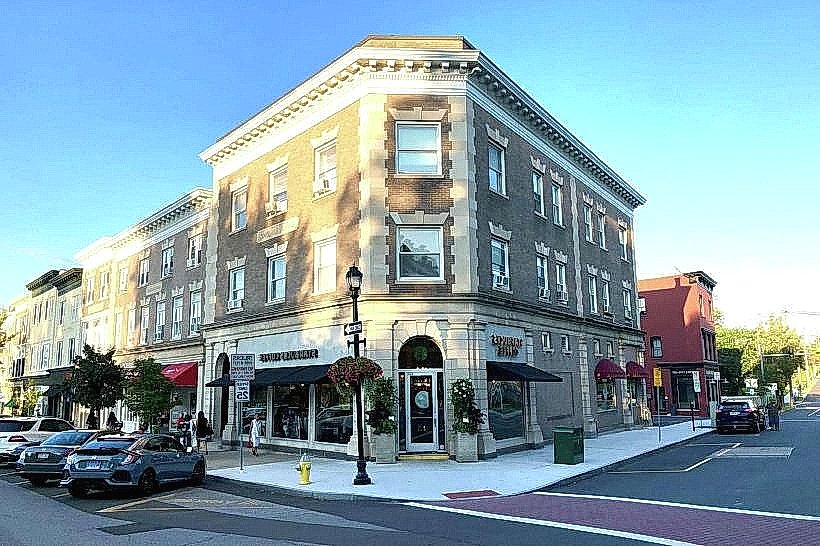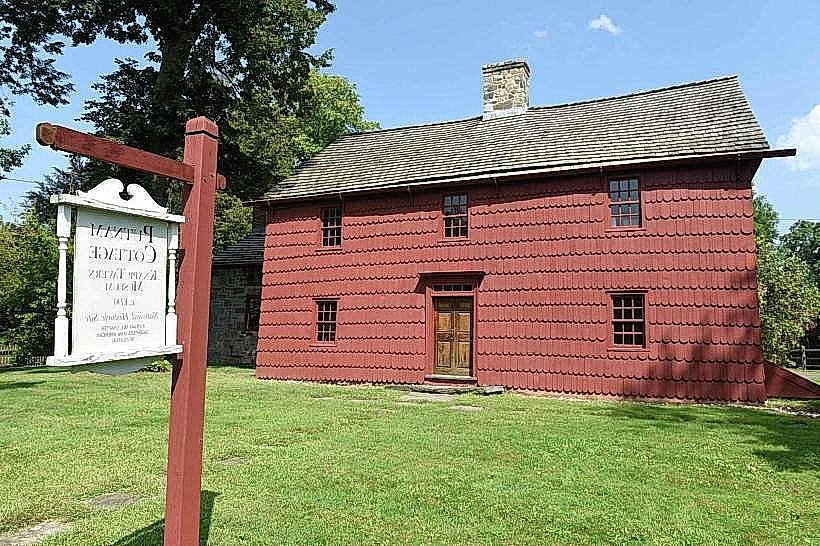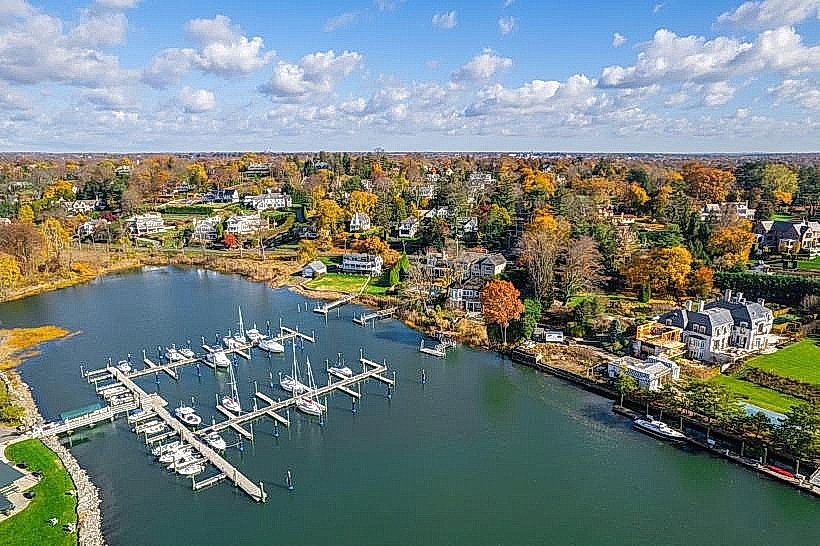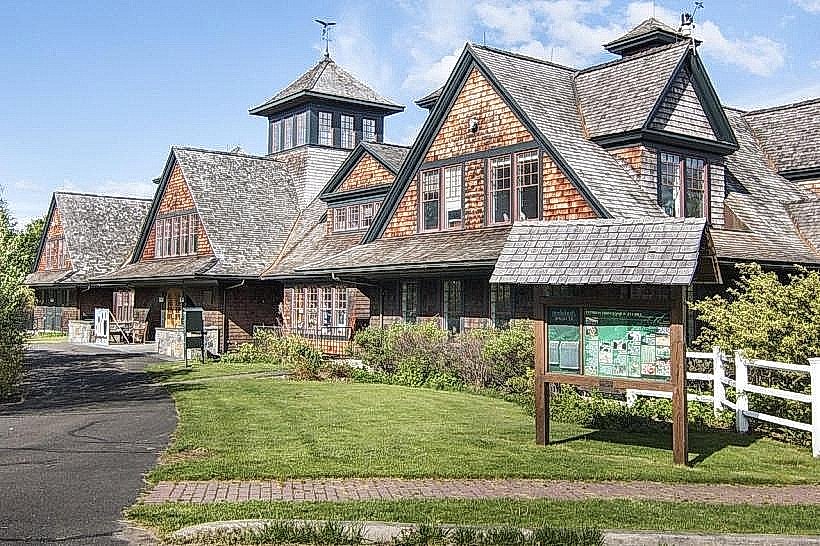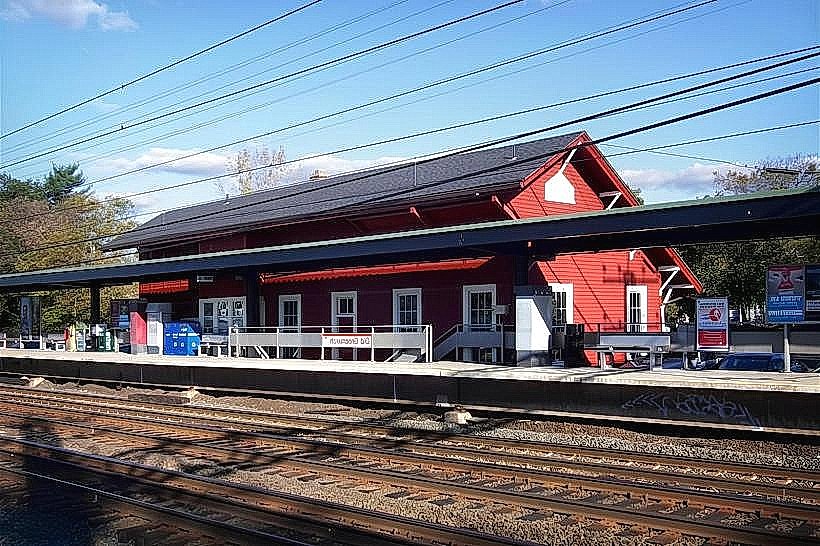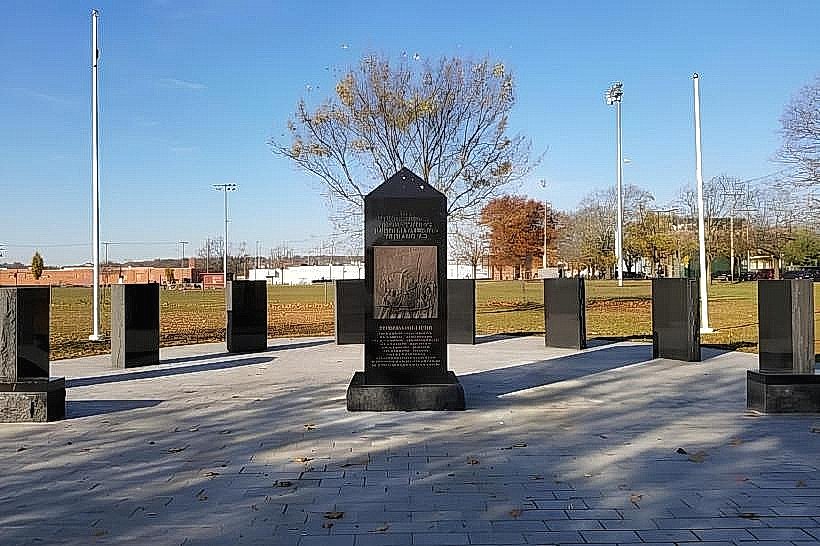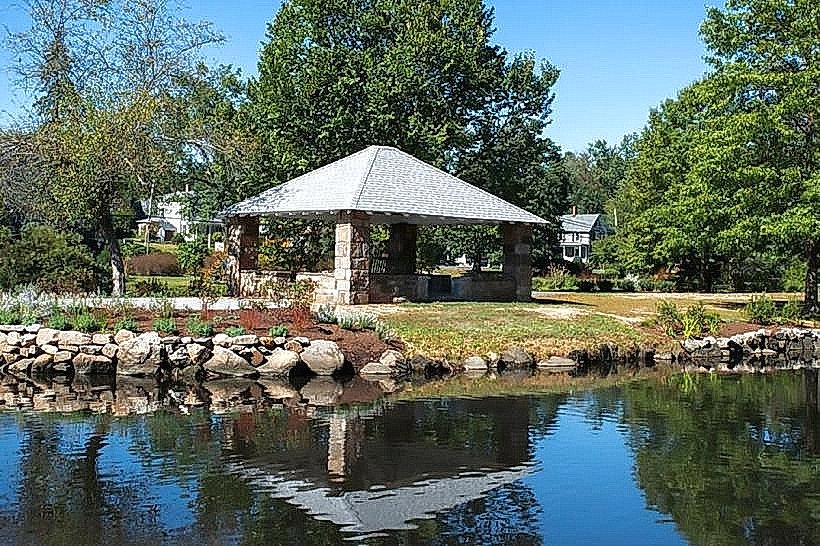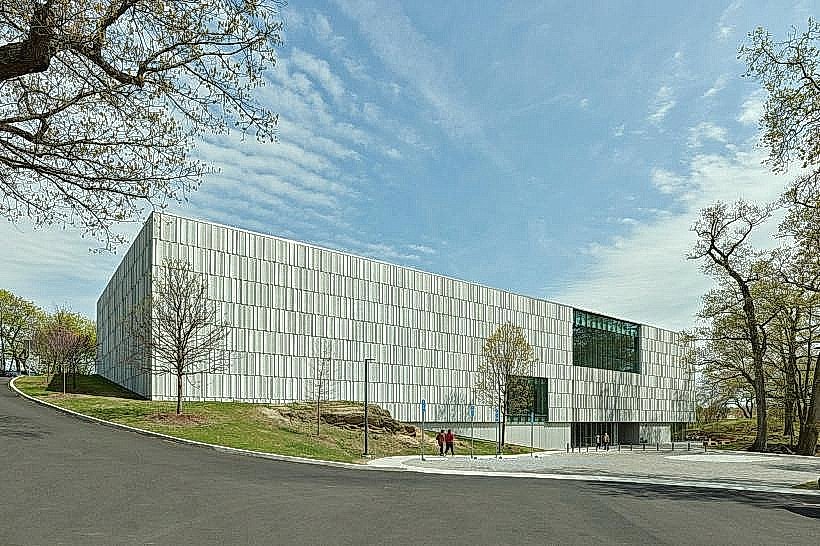Information
Landmark: Round Hill Historic DistrictCity: Greenwich
Country: USA Connecticut
Continent: North America
Round Hill Historic District, Greenwich, USA Connecticut, North America
The Round Hill Historic District is a distinguished residential and historic area in Greenwich, Connecticut, known for its architectural diversity, suburban planning, and association with prominent local figures. It reflects the development of Greenwich from a rural village into an affluent suburban community while preserving its historic character.
Historical Background
The district developed primarily in the late 19th and early 20th centuries as Greenwich became a desirable suburban enclave for wealthy New Yorkers.
The area was shaped by early landowners and developers who envisioned planned estates, combining aesthetic landscaping with architectural sophistication.
Many of the homes were constructed by prominent families, reflecting social status and the influence of the Gilded Age suburban movement.
The district has remained largely residential, maintaining its historic streetscape and integrity while integrating modern amenities.
Architectural Character
The Round Hill Historic District is noted for its architectural variety, including:
Colonial Revival – emphasizing symmetry, classical detailing, and formal façades.
Tudor Revival – featuring steeply pitched roofs, half-timbering, and leaded glass windows.
Shingle Style and Craftsman homes – reflecting regional tastes and adaptation to the landscape.
Victorian elements – occasionally appearing in early houses, with ornate woodwork and decorative trim.
Estates are often set on large lots with mature trees, landscaped gardens, and stone walls, creating a park-like suburban environment.
Streets are typically curvilinear, following natural topography, a hallmark of early suburban planning.
Community and Cultural Role
The district represents Greenwich’s transformation into an upper-middle-class and affluent suburb, preserving the historic lifestyle of its early residents.
Its carefully planned layout and preserved architecture contribute to the city’s identity and aesthetic character, serving as a visual and cultural reference for suburban development.
Round Hill remains a residential enclave, with homes that are highly sought-after for their historic value, privacy, and proximity to the coast and urban centers.
Preservation and Significance
The district is listed on the National Register of Historic Places, recognizing its architectural integrity, historic associations, and landscape planning.
Preservation efforts focus on maintaining original structures, streetscapes, and lot layouts, ensuring that modern development does not compromise historic character.
It serves as an example of planned suburban development during the late 19th and early 20th centuries, blending architecture, landscape design, and community planning.
Present-Day Importance
Today, the Round Hill Historic District continues to function as a quiet, residential neighborhood while offering insight into Greenwich’s historic suburban expansion.
Its homes and streetscapes are valued for both architectural significance and lifestyle, combining historical charm with modern living standards.
The district represents the heritage of Greenwich’s affluent residential planning, showcasing how historical architecture and suburban design have been preserved in a contemporary context.
The Round Hill Historic District is a living example of Greenwich’s suburban history, where historic estates, architectural variety, and carefully planned landscapes convey the city’s evolution from rural village to affluent, historically conscious community.

